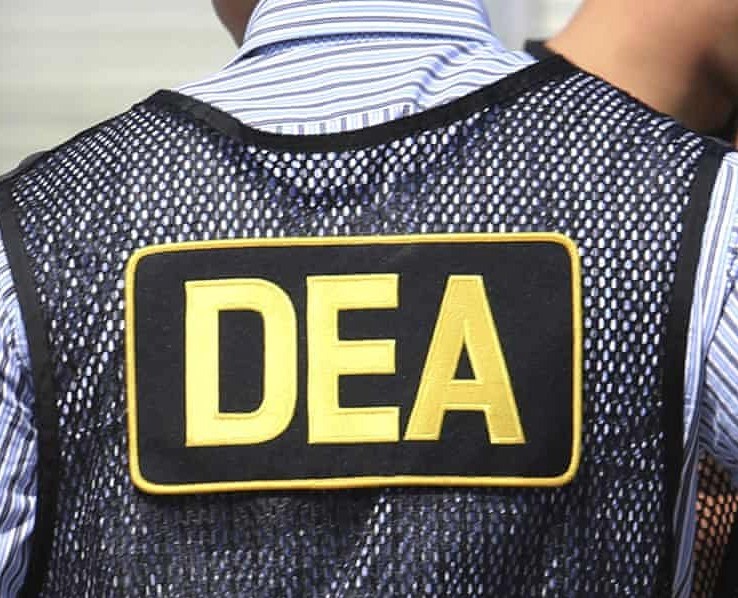
As a former federal prosecutor for DEA cases beginning in 2008, the Agency's shift has been gradual but remarkable. Back in the days before the Ryan Haight Act, the DEA was dealing with internet-based pharmacies that dispensed huge volumes of controlled substances from second-floor, strip mall locations. Similarly, the opioid epidemic in Florida was particularly rampant, with so-called "pill mills" that attracted patients up and down the I-95 corridor from Kentucky to West Virginia and beyond. That's when Joe Rannazzisi, the DEA's whistleblower from the 60-Minutes television show, launched the "Distributor Initiative" because DEA believed that downstream registrants, like pharmacies and physicians, were too numerous for DEA to effectively regulate.
The Opioid Epidemic Has Resulted in Changes
Times have now changed. The Nation's opioid epidemic has educated all of us about the pitfalls associated with miracle drugs that restore daily function and quality of life to millions of patients but overlap with difficult-to-manage scenarios involving addiction and misuse. In addition, many of the major wholesalers operate under compliance decrees and settlements that require them to police their customers closely. I helped build McKesson's suspicious order monitoring program for independent and chain pharmacies and dispensing practices; these algorithms are incredible. As a result, we see less and less of those DEA cases involving lines around the block, hand-to-hand exchanges in parking lots, and security guards in waiting rooms.
Traditional "Diversion" Cases are More Limited
But DEA is still attempting to recover from the scathing criticism and blame the Agency received as a result of the opioid epidemic. Was some of that blame unjustified? Yes, of course. But some of it wasn't. Either way, the so-called pendulum has now swung dramatically towards stricter enforcement, and registrants better heed this trend because it marks a significant departure from DEA's prior approach. For example, it has always been extremely difficult for law enforcement to pierce the doctor-patient visit and a pharmacy's ability to rely on a physician's order. Historically, this has limited the number of traditional "diversion" cases that can be brought.
Routine Inspections Now Result in Extremely Harsh Penalties
DEA's new approach, however, eliminates the need to prove actual "diversion" or "over-prescribing" to impose sanctions. Specifically, DEA's clever new agenda is to target registrants through routine DEA inspections or administrative warrants for "record-keeping" violations. In years past, such record-keeping violations would be resolved through letters of admonition (LOA) or minor civil and administrative fines. Not anymore. Under DEA's latest regime, alleged record-keeping violations are now the genesis of revocation and suspension proceedings brought by the DEA's Office of Chief Counsel, and business-ending, death penalty fines imposed by U.S. Attorney's Offices around the country. In short, a registrant need not "divert" a single pill to be stripped of his or her DEA registration, and a waterfall of board and licensing proceedings typically follows.
DEA & State Controlled Substance Regulations are Confusing
Finally, one reason that DEA's new agenda is so scary is that DEA regulations are opaque, and DEA agents and diversion investigators each have their own interpretations of what those regulations require. In addition, both the DEA and the State in which a business operates typically regulate controlled substances, with areas of overlap and potentially conflicting regulations. As a result, we have been forced to defend pharmacists and physicians who acted in good faith against false DEA record-keeping allegations. In short, if you have any concerns whatsoever about compliance with complex DEA rules and regulations, you need to get buttoned-up immediately. An ounce of prevention will go a long way here, and we have DEA experts available if you need help. Call now for a completely confidential and attorney-client privileged free consultation.
MORE ARTICLES BY CATEGORY
The 2025 Healthcare Fraud Takedown Is a Warning Shot for Wound Care Providers
Wound care is now an enforcement priority. The 2025 fraud takedown targets skin substitute billing, graft utilization, and Medicare compliance.
Read More >>FDA and Novo’s Uncharted Waters to Exert Pressure on Hims & Hers and GLP-1 Compounders
Novo’s lawsuit against Hims & Hers, coupled with FDA’s referral to the DOJ, marks a direct escalation against 503A compounded semaglutide. If your pharmacy dispenses, compounds, or markets GLP-1 therapies, this is not a headline, it is a regulatory turning point.
Read More >>What Wells Pharma v. Zyla Life Sciences Means for Compounding Pharmacies and Outsourcing Facilities
A pending Supreme Court case could reshape how compounding pharmacies face litigation under state unfair competition laws tied to FDA approval standards.
Read More >>Health Law Alliance Welcomes Compounding Expert Pharmacist-Attorney Dr. Martha Rumore as Of Counsel
Health Law Alliance adds powerhouse Pharmacist/Attorney Dr. Martha Rumore to their team of boutique healthcare attorneys.
Read More >>






